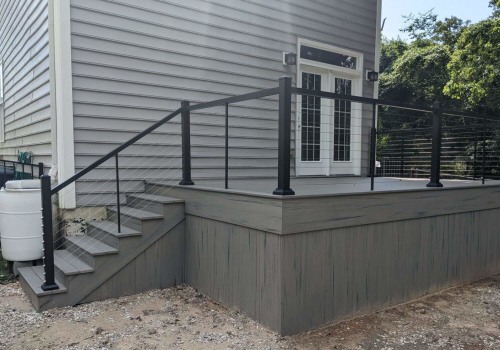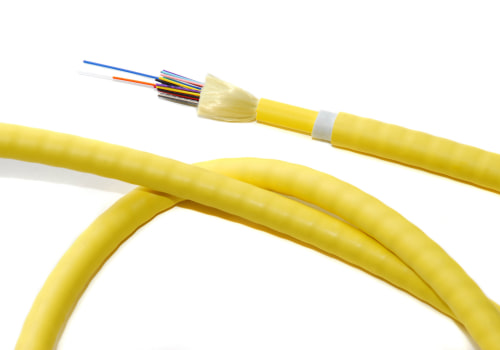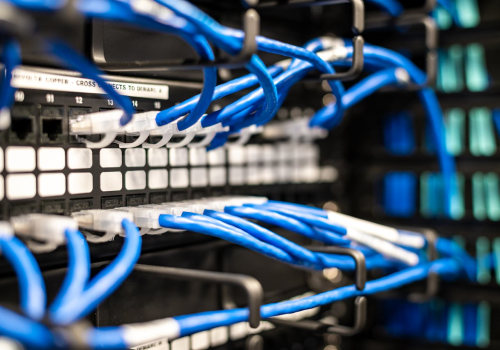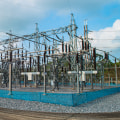When it comes to network cabling in Baltimore, Maryland, there are specific regulations and guidelines that must be followed. As an expert in the field, I have seen firsthand the importance of adhering to these regulations to ensure safe and efficient network cabling installations. In this article, I will provide a comprehensive overview of the regulations for network cabling installation in Baltimore, Maryland.
The Importance of Regulations for Network Cabling Installation
Before diving into the specific regulations for network cabling installation in Baltimore, it is essential to understand why these regulations exist in the first place. Network cabling is the backbone of any modern business or organization.It allows for the transfer of data and communication between devices, making it a critical component of daily operations. Without proper regulations and guidelines, network cabling installations can be haphazard and potentially dangerous. Faulty installations can lead to network downtime, which can result in significant financial losses for businesses. Additionally, poorly installed cabling can pose safety hazards, such as fire risks or electrocution. Therefore, it is crucial to have regulations in place to ensure that network cabling installations are done correctly and safely.
The National Electric Code (NEC)
The National Electric Code (NEC) is a set of standards for electrical installations in the United States. It is updated every three years and is widely adopted by states and local jurisdictions.The NEC covers all aspects of electrical installations, including network cabling. In Baltimore, Maryland, the NEC is enforced by the Department of Permits and Building Inspections. This department is responsible for issuing permits and conducting inspections to ensure that all electrical installations, including network cabling, comply with the NEC. Some of the key regulations for network cabling installation in Baltimore, Maryland, as outlined by the NEC, include:
- Proper Grounding: All network cabling installations must be properly grounded to prevent electrical hazards and ensure the safety of individuals.
- Cable Pathways: Cables must be installed in designated pathways, such as conduits or cable trays, to protect them from damage and ensure they are easily accessible for maintenance and repairs.
- Cable Support: Cables must be adequately supported to prevent sagging or damage. This includes using appropriate cable ties and supports.
- Cable Separation: Different types of cables must be separated to prevent interference and ensure proper functioning. For example, power cables must be separated from data cables.
Local Regulations in Baltimore, Maryland
In addition to the NEC, there are also local regulations in Baltimore, Maryland, that must be followed for network cabling installations.These regulations are enforced by the Baltimore City Fire Department and the Department of Public Works. Some of the key local regulations for network cabling installation in Baltimore, Maryland, include:
- Fire Code Compliance: All network cabling installations must comply with the Baltimore City Fire Code. This includes using fire-resistant materials and following proper fire safety protocols.
- Permit Requirements: A permit is required for all network cabling installations in Baltimore, Maryland. This permit must be obtained before any work can begin.
- Inspections: The Baltimore City Fire Department conducts inspections to ensure that all network cabling installations comply with local regulations and the NEC.
The Role of Licensed Professionals
In Baltimore, Maryland, network cabling installations must be done by licensed professionals. This means that the individual or company performing the installation must hold a valid electrical license issued by the state of Maryland. Licensed professionals are trained and knowledgeable about the regulations and guidelines for network cabling installation.They are also required to stay up-to-date with any changes or updates to these regulations, ensuring that installations are always compliant. Additionally, hiring a licensed professional for network cabling installation provides peace of mind for businesses and organizations. They can trust that the installation will be done correctly and safely, reducing the risk of any potential issues or hazards.
Consequences of Non-Compliance
Failure to comply with the regulations for network cabling installation in Baltimore, Maryland, can result in serious consequences. These consequences can include fines, penalties, and even legal action. If an inspection reveals that a network cabling installation does not comply with the regulations, the installer may be required to make necessary changes and obtain a new permit. In some cases, the installer may also face fines or penalties. In extreme cases where non-compliance poses a significant safety hazard, legal action may be taken against the installer.This can result in costly legal fees and damage to their reputation. This can result in costly legal fees and damage to their reputation.







